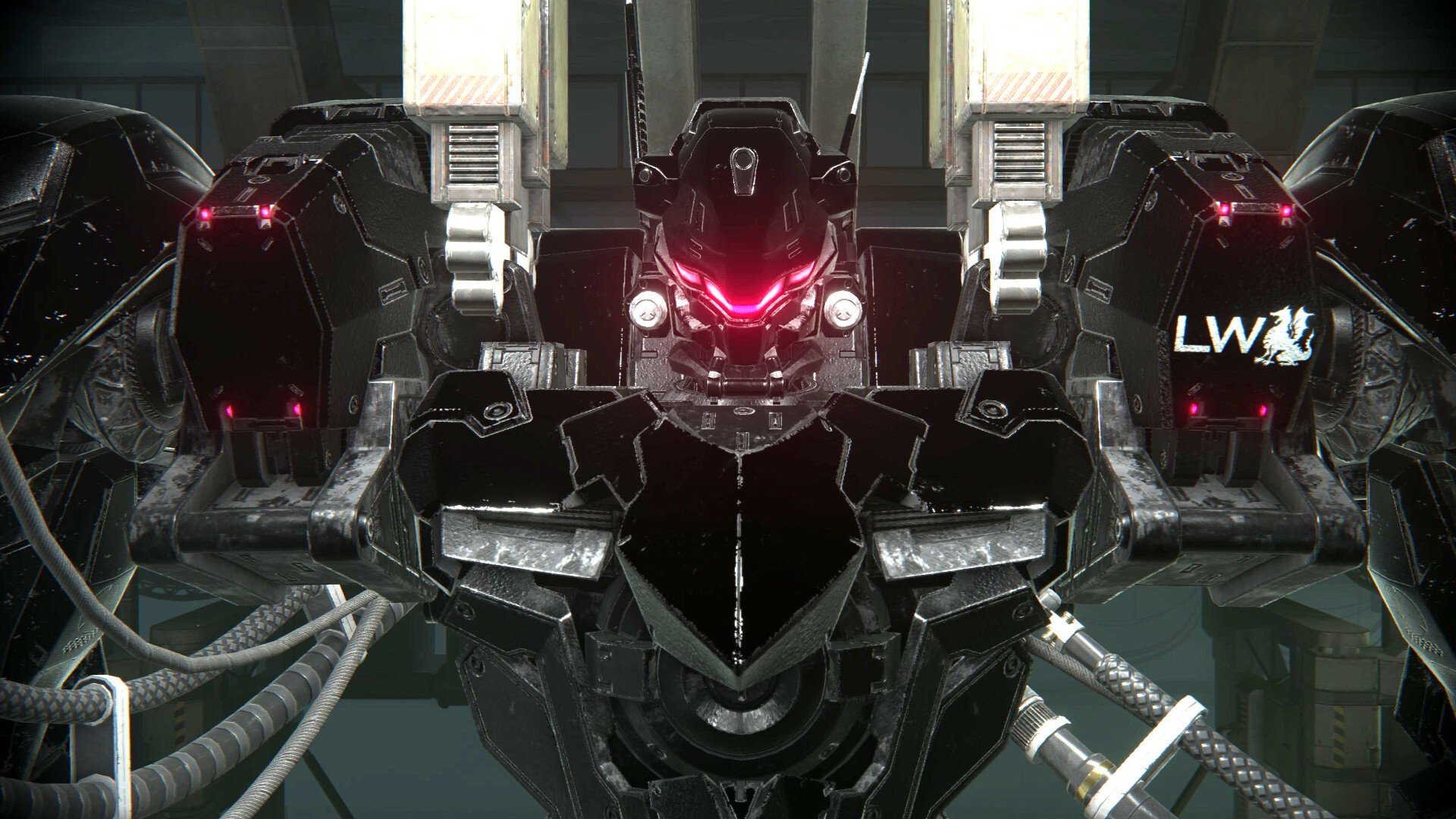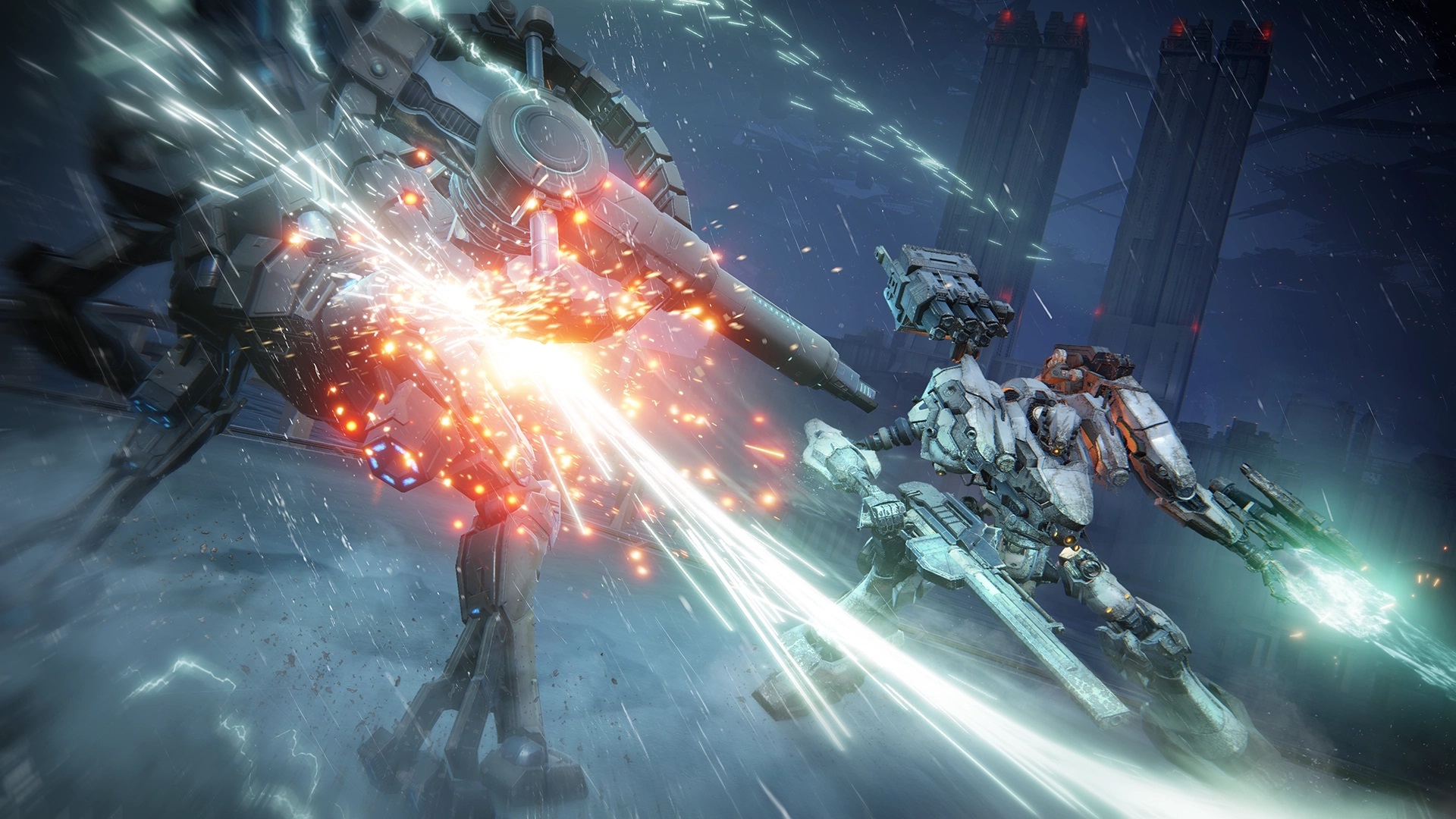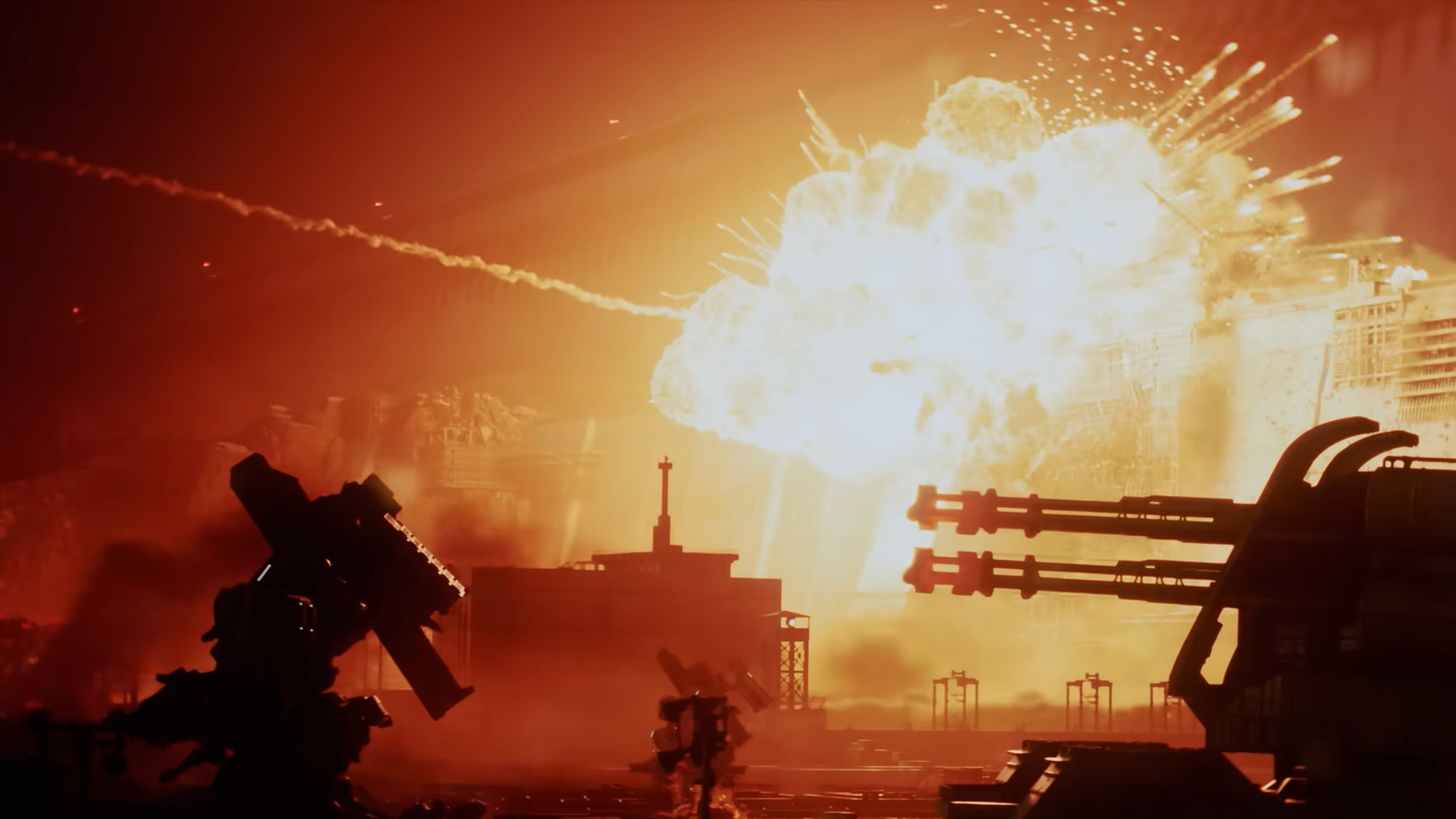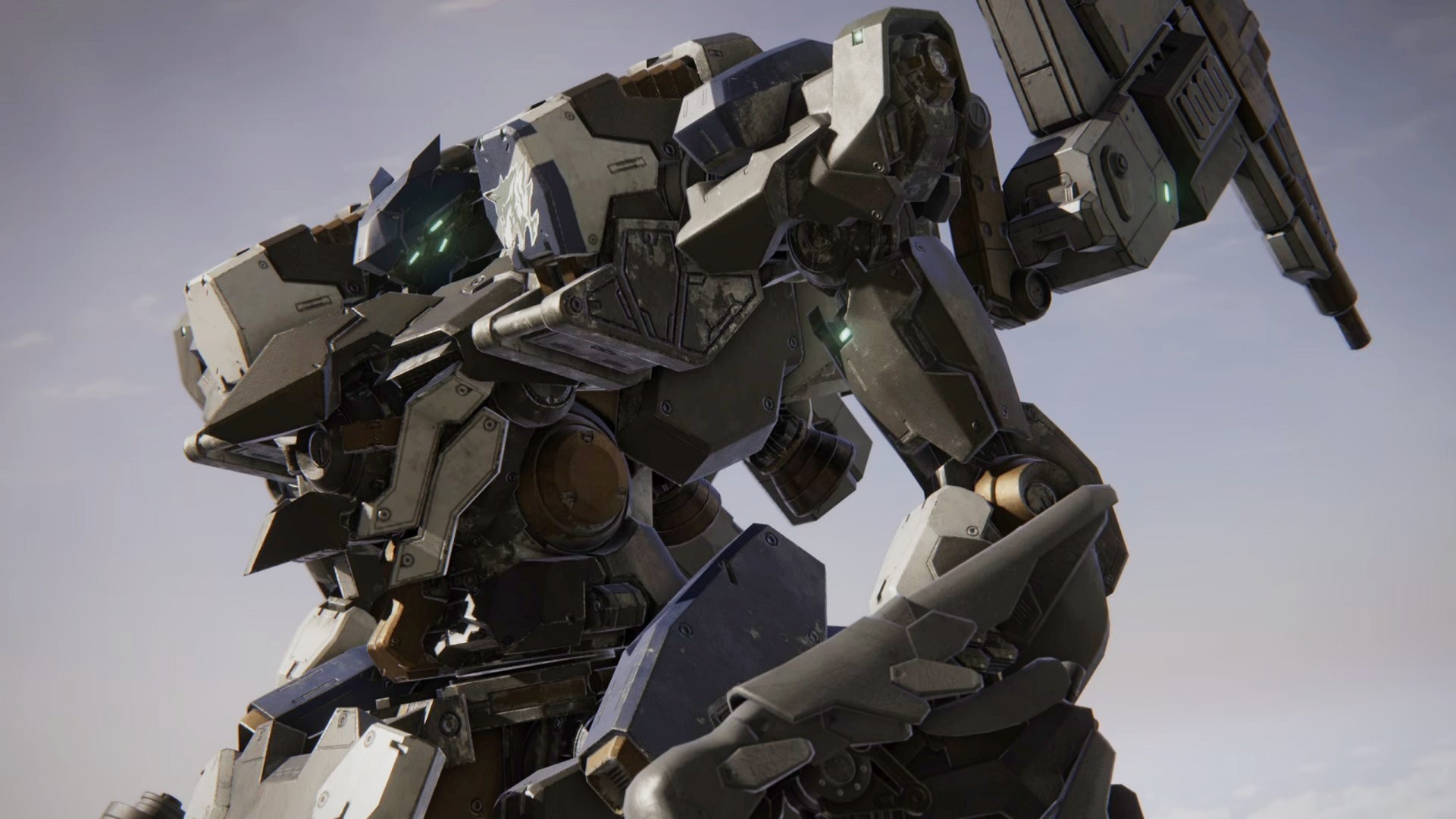Forget Bloodborne turning us into slugs, Armored Core 6 is FromSoftware's most dehumanizing game
Opinion | Armored Core 6 explores departures from humanity in very different ways

Armored Core 6: Fires of Rubicon is FromSoftware's most dehumanizing game. That might sound a little odd at first, given Bloodborne had a penchant for turning the player character into a literal slug at one point, but Armored Core 6 tackles player deconstruction in a very different way.
For starters, the obvious: the player doesn't even have a body in Armored Core 6. There's no character customization screen, no presets you can choose from to shape an avatar. You are represented, both in the story and on-screen at any given point, by the mech you choose to pilot, whatever shape or size that comes in.
Armored Core 6 has the player as one with this mech. The robot isn't an extension of us, because we have no physical manifestation in FromSoftware's game. Rather, it's a stand-in for the player character, the only way through which we can exert any sort of will or presence in the ruins of Rubicon.
Machine yearning


Armored Core 6 review: "Left me wanting more even after beating it twice"
When I hold up on the analog stick to move forward in Armored Core 6, I'm not moving forward as me, the player character, I'm moving as the mech itself. There's not even a look at how the player character operates in any mech – for all we know, we could literally be a head in a jar, like Richard Nixon in Futurama. It's through this that FromSoftware removes any semblance of humanity from the player. When we have zero presence outside the mech, and operate only from within the gigantic robot, how human can we really claim to be?
There's little steps into the posthuman in Armored Core 6 for the player character. We're touted as an "augmented human" in the early hours of the game, someone that's had their "brain fried" and messed with in order to pilot a mech. The implication is definitely there that an "ordinary" human wouldn't be able to step into a mech and kick it into gear, further pushing us away from whatever humanity looks like in the distant future.
One late-game mission even has a document from the past, pondering who would dare cross the ethical boundary of augmenting a human being. Sorry pal, but there's apparently hundreds, or even thousands of us now, so that ethical boundary has been trodden on till there's nothing left.
Don't get these stylings confused with the likes of Bloodborne. Armored Core 6 removes humanity from the player by lessening them, which you're reminded roughly every 10 minutes for the opening five hours when Handler Walter refers to you as a "hound." Bloodborne, however, puts the posthuman in lock step with the player gaining more literal power throughout the game.
Sign up to the GamesRadar+ Newsletter
Weekly digests, tales from the communities you love, and more
To access The Old Hunters DLC in Bloodborne for example, you need to accrue a certain level of Insight. At this point, standing just outside a church in a particular spot will let you see a domineering beast, as though it had been lurking there all along, only the player physically couldn't see it with what little Insight they possessed. Bloodborne also has the player 'ascending' humanity rather than othering them with augmentations and scrambled brains. The best example of this is one of the endings, where the player can overcome the 'Moon Presence' boss and be reborn as a slug. Looks can be deceiving here though, as the player has ultimately attained a Godly form and will depart humanity to exist on another plain entirely.

"It's all pretty terrifying stuff, honestly."
Armored Core 6 dehumanizes the player instead, and they're ripe prey for the corporations. Wars rage throughout the universe for substances like Coral, which were long thought to be a new powerful resource for humanity, until they instead acted as the kindling for an enormous fire, which swept throughout space, leaving husks like Rubicon in its wake. Wars are fought not by governments here, but by mega-corporations, the sort of which have fleets of spacefaring fighters and legions of mechs at their disposal. "Disposal" is the key word here, because the corporations view anyone in their ranks as pawns to be commandeered around a chess board, particularly mech pilots who've had their brains fried and bodies wrecked.
It's all pretty terrifying stuff, honestly. That a corporation spanning the stars can hit up a mercenary and say "go murder scores of these people, dog" without so much as a pause for human life is soul-destroying. Armored Core 6 really hones in on corporations being the ultimate bad guys for humanity, and that alone deserves some praise.
Your faceless masters are represented by logos on a screen, logos that Armored Core 6 makes sure you know will forever be more valuable than any human life. All it took was one side character referring to the player character as "buddy" for the whole fanbase to be ready to declare their love for the ally, such are the dire straits the player faces.
In the post-Demon's Souls era, Armored Core 6 is by far and away the most dehumanizing and arguably bleak game FromSoftware has ever made. Sometimes it's not the imposing locations of Blighttown, or the taunting bosses like Micolash that get the player down. Sometimes it's being stripped of your humanity, cast in the role of a dog at the mercy of its faceless masters, and being used as a murderer.
You can read up on our Armored Core 6 builds guide for a deep dive into how to assemble every common type of AC.
Hirun Cryer is a freelance reporter and writer with Gamesradar+ based out of U.K. After earning a degree in American History specializing in journalism, cinema, literature, and history, he stepped into the games writing world, with a focus on shooters, indie games, and RPGs, and has since been the recipient of the MCV 30 Under 30 award for 2021. In his spare time he freelances with other outlets around the industry, practices Japanese, and enjoys contemporary manga and anime.



